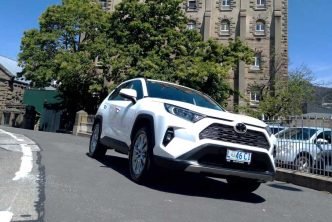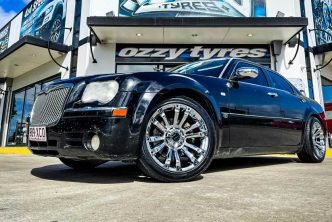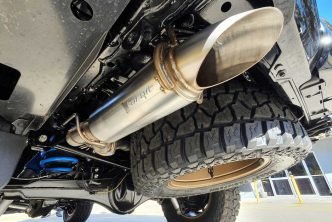Who would have thought it, but did you know that a modern car is a lucrative data mining cash-cow for its manufacturer? In fact, the data your car could be collecting about you, the driver, the places you visit and the way you drive could be potentially worth more, in the long term, to the vehicle manufacturer than the sale of the car itself.
It’s a complex concept that very much depends on the age and make of car you buy and the way you set up the vehicle once you’ve purchased it, but the fact remains that manufacturers can, and do, collect huge amounts of data about their customers, as this driver study in the UK’s Guardian newspaper explains.
Keeping your eyes on the road
Naturally, car makers say that this is to ‘improve the customer experience’ but a cynical person might be forgiven for believing that it’s also to improve the manufacturer’s profitability by selling that anonymised data to third parties.
Fortunately, safety protocols won’t allow the driver to access their social media or watch videos while they’re driving along, but rear-seat passengers can do so on screens built into the back panels of the front seats – so the car manufacturer might know what videos your kids like to watch or whatever is going on with those screens with adult passengers.
Accordingly, you might think that if you want to use the internet in your car when you’re not actually driving, your privacy is safe if you’re just using your phone to email or access the worldwide web, but then again, without using a virtual private network (VPN), is even that activity safe from prying eyes?
A VPN works by placing an encrypted ‘middleman’ server between your 4G phone signal provider and the phone itself, so that when you access the desired target website or email server, the phone data provider can’t identify you or even where you are accessing the signal from. You can even choose a server based in another country – for example, an Indian VPN could effectively place you in South Asia when you were actually snuggled-up in a motel room in Saratoga Springs!
Currently, there isn’t a VPN manufacturer that has produced a software capable of covering every data-gathering device in a car, but at least it can protect your phone or tablet. But think about all the tech that a modern car holds, and the data it can store and send back to the car’s manufacturer:
- GPS – knows every journey you made and when,
- Onboard computer – ‘learns’ your driving style, how quickly you accelerate, how harshly you brake, your frequency of overtaking,
- Dashboard Camera, some of which can also record inside the car to assess facial expressions,
- Radio and Apps – records your playlists, music genre preferences and news channels you might listen to.
Being put on a charge?
And those are just the devices in common use, who knows what else cars can record about how we live? Do EV charging stations log where we topped up the car’s batteries? Suddenly it seems quite appealing to drive a 30-year-old pickup truck, where the most technologically advanced device on the dashboard is a cigarette lighter!
VPNs often work as ‘software extensions’ on the devices where they’re installed. It’s important to note that fact because they don’t protect entire networks. On a mobile phone, you would install a VPN onto the browser software app that you use to access the internet, not on the phone’s core software itself. This is more sensible anyway, because a VPN server will detect potential malicious activity from internet baddies. For example, if you logged onto a free guest Wi-Fi somewhere, which seemed perfectly legitimate but was created by hackers, your VPN provider would detect any malicious activity and disconnect your device from only that network, leaving the phone still connected to 4G and voice call capability.
It probably won’t be long before drivers of modern cars start to understand how much of their personal data is being used to make a profit for car makers, from which they receive no share. When that happens, apps similar to VPNs will start to crop up that you will be able to install onto the vehicle’s dash cams, radio, GPS and the like to secure the driver’s personal privacy.
Community Police
This is just another example of the march of technology not always being a good thing – but it’s all down to how the use of this technology is controlled by governments. In fact, the whole theory of tech being used for good and bad intentions was summed up nicely in a quote by Eric Schmidt, former CEO of Google, who spoke along these lines:
‘Sure, a mobile phone can be used to save lives just as easily as it can be used by drug dealers to ply their trade. But just because drug dealers can take advantage of phone technology, you don’t ban the mobile phone – you just need to ensure that its use is properly policed…’
So there you have it from one of the most tech-savvy men on the planet – when you’re using tech, make sure you know what’s happening behind the scenes and how that might affect your livelihood. Or, in the context of cars, just buy yourself a 25-year-old scrap camper van and a paper road map!





